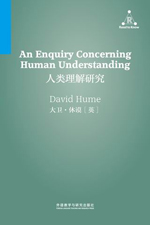人类理解研究
阿豆
Verse 2 When we ask, "What is the nature of all our
inferences about actual things?" And the proper answer seems to be
that they are based on the relation of cause and effect. If we then ask,
"What is the basis of all our inferences and conclusions about that
relationship?" then we can again reply in one sentence that it lies
in experience. But if we continue to indulge our penchant for careful
inquiry and ask, "What is the basis of all conclusions drawn from
experience?" Then this contains a new question, and one that is
perhaps even more difficult to solve and to explain. The two
propositions below are not in any way the same. One proposition says:
"I have seen that such an object always has such a consequence
accompanying it"; the other proposition says: "I have foreseen
that other objects similar in appearance will also have similar results
accompanying them." I also admit that the latter proposition can be
correctly deduced from the former, and I know that in fact it is always
so deduced. But if you insist that this inference follows from a string
of inferences, then I would like you to indicate that string of
inferences. This connection between these propositions is not intuitive,
and a medium is needed here to enable one to introduce this
conclusion-if it is introduced by means of inference and argument. What
exactly this medium is, I admit, that is beyond my knowledge. Therefore,
if people claim that it exists and that it is the source of all
conclusions in terms of practical things, then they must be responsible
for indicating this medium. All inferences can be divided into
two categories, one inference is demon A stra-tive, which is concerned
with the relation of ideas, and the other inference is contingent, which
is concerned with actual facts or existence. In our present case, it
seems clear that there is no demonstra-tive argument; for natural paths
are changeable, and an object, even if it seems to be the same as the
one we have experienced, can give rise to different or opposite results;
there is no contradiction in these things. So if there are
arguments that make us trust past experience and use it as a criterion
for our future judgment, they must be only contingent, and must concern
only actual things and real beings - according to our classification
above. But if our interpretation of such inferences is solid and
satisfactory, we must see that these arguments, as described here, do
not exist. We have already said that all arguments for actual existence
are based on causality; that all our knowledge of this relation comes
from experience; and that all our empirical conclusions are based on the
assumption that "the future must be compatible with the past".
Therefore, if we try to prove this last hypothesis by arguments of
cogency, or of real existence, we are clearly going back and forth, and
taking for granted what is being argued.



 京公网安备 11010802032529号
京公网安备 11010802032529号